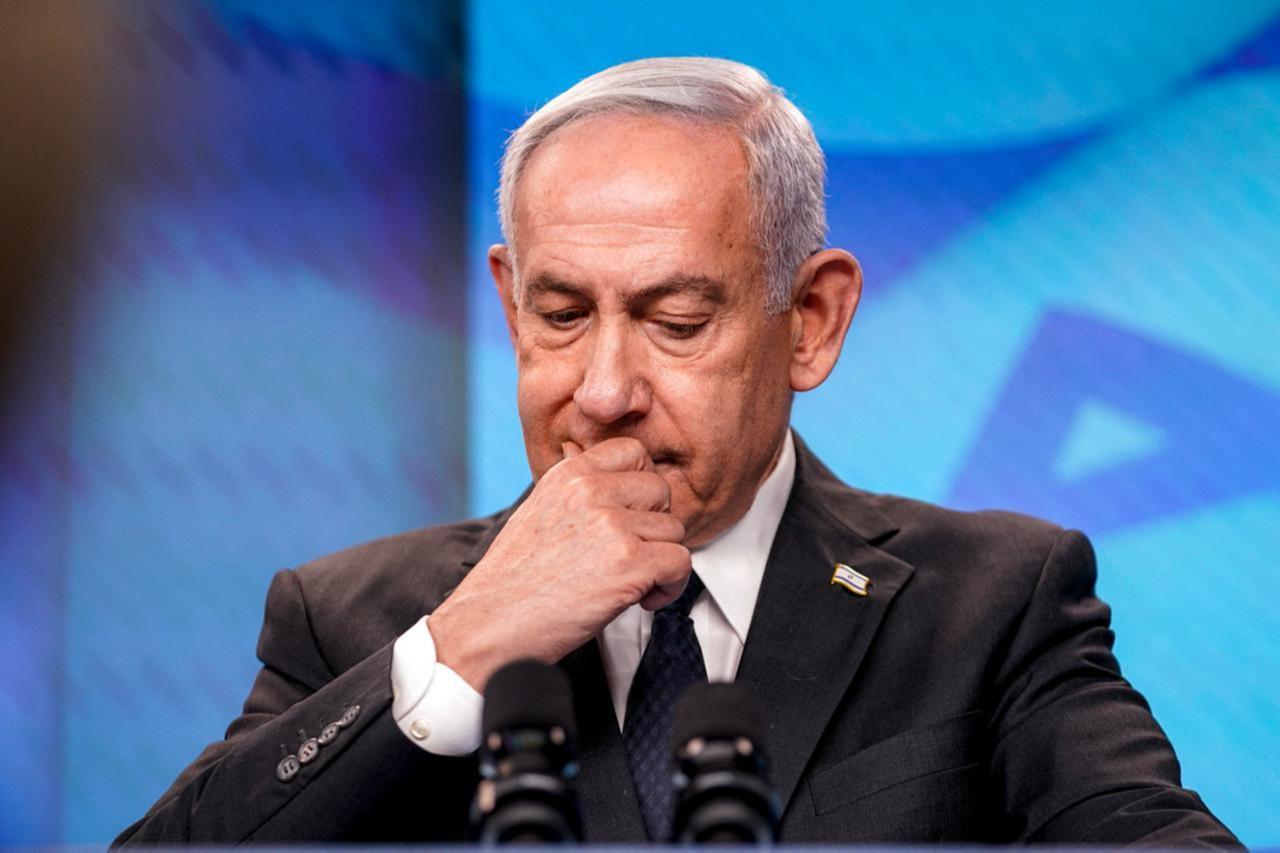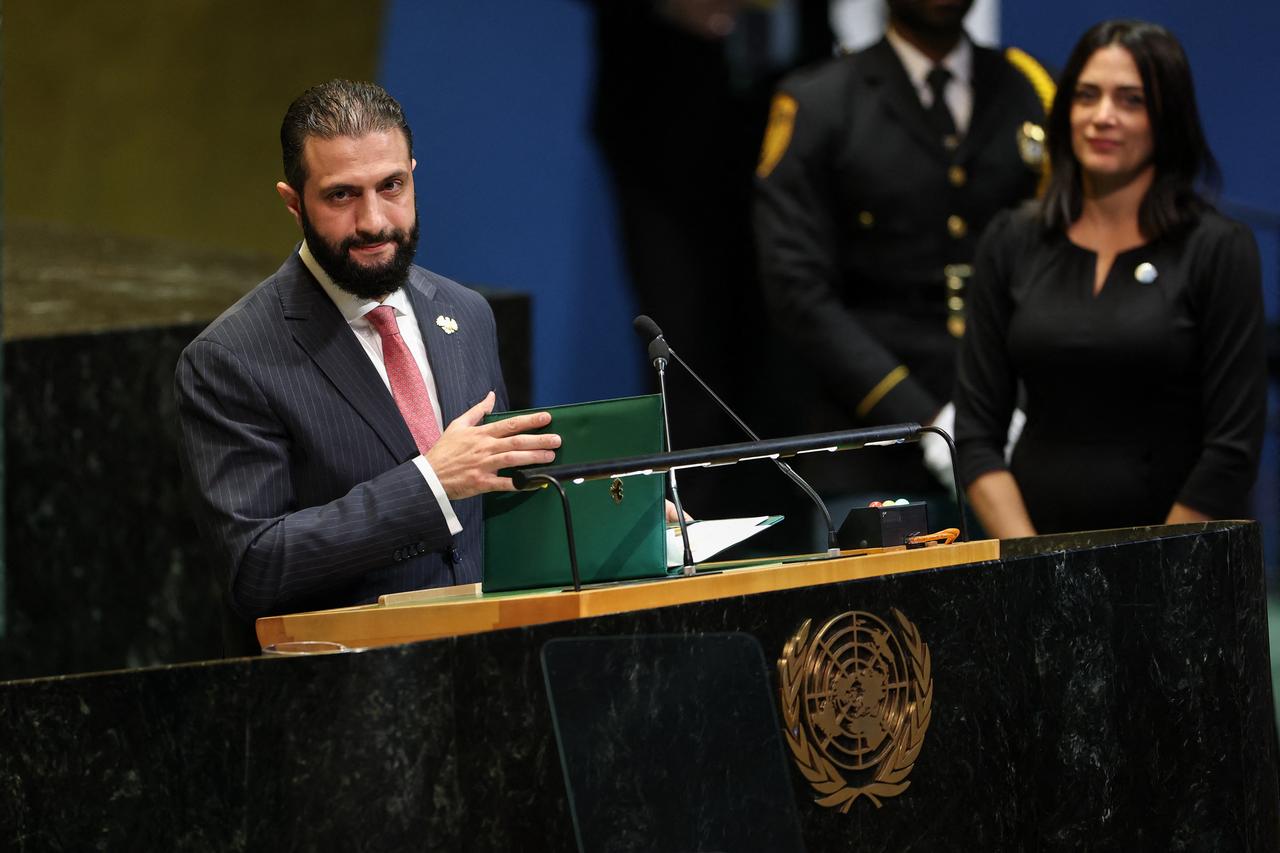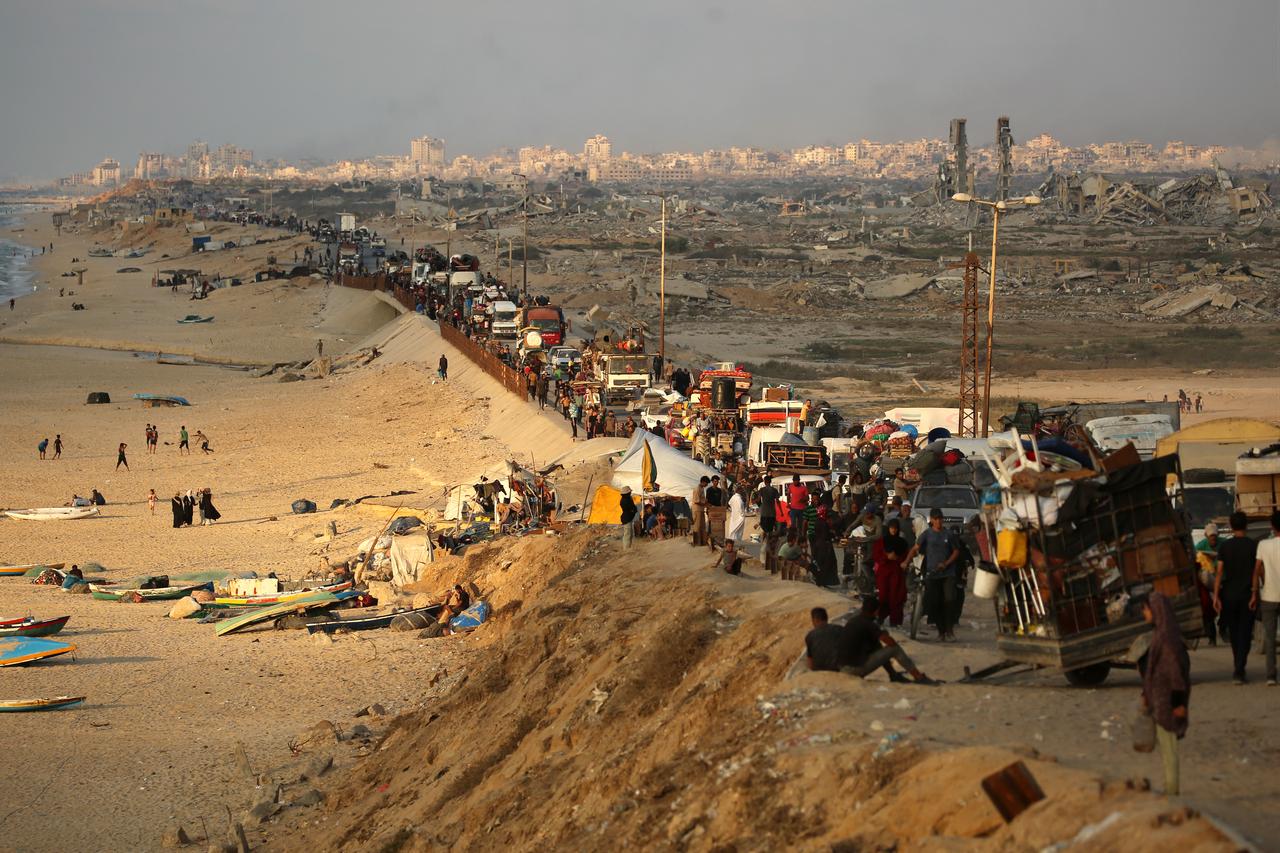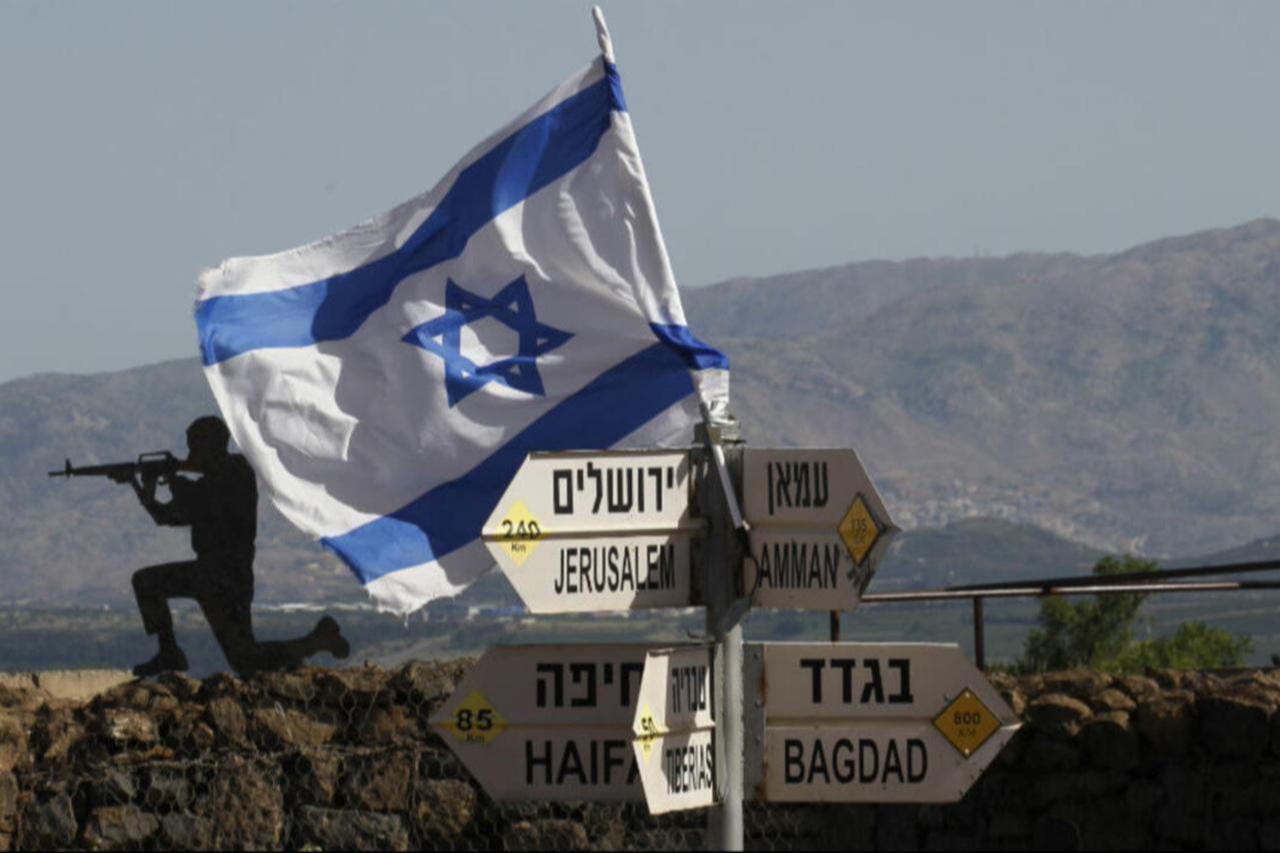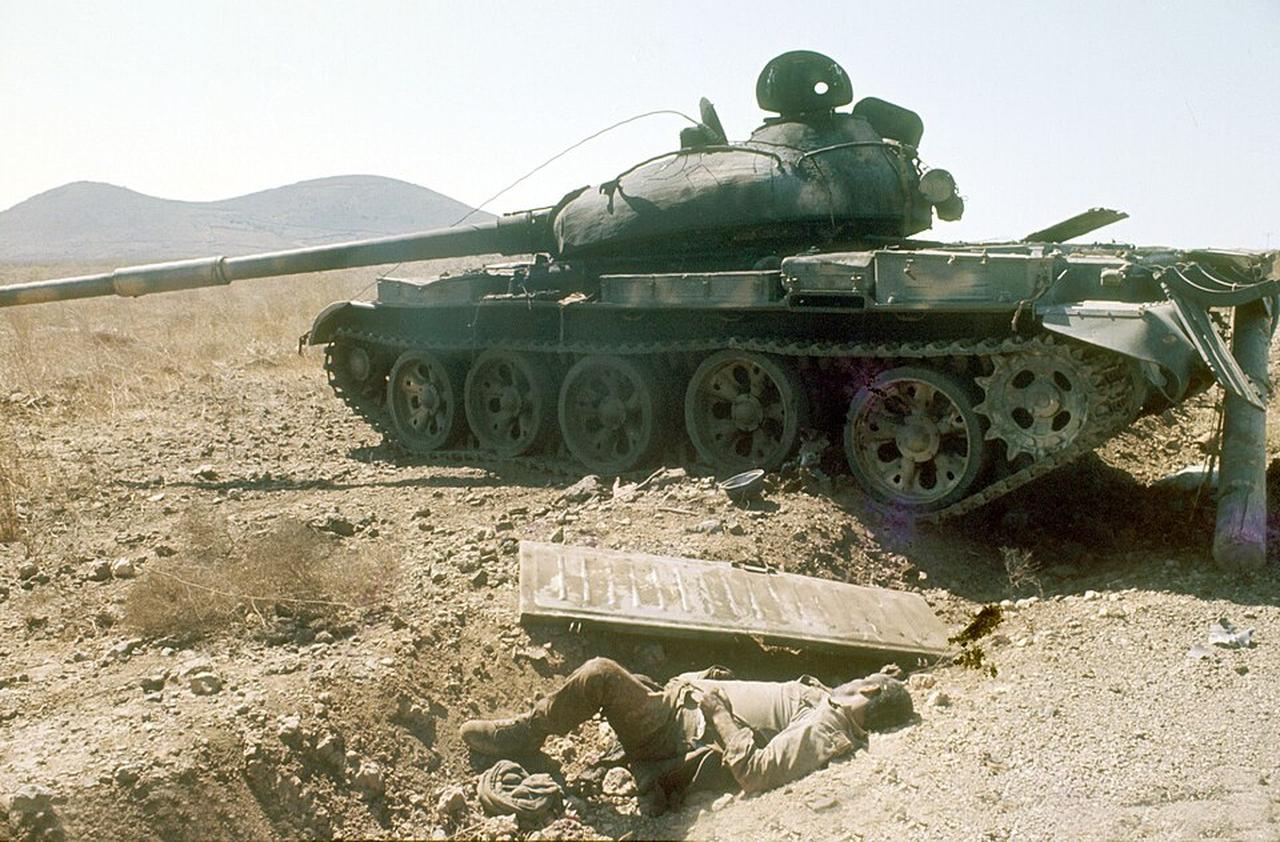Netanyahu says Israel negotiating security talks with Syria
Israels Prime Minister Benjamin Netanyahu reacts during a joint press conference with the U.S. Secretary of State at the Prime Ministers Office in Jerusalem, Sept. 15, 2025. (AFP Photo)
September 25, 2025 10:37 AM GMT+03:00
Prime Minister Benjamin Netanyahu said Wednesday that Israel is holding negotiations with Damascus over a possible security arrangement. He stressed the talks center on demilitarizing southwestern Syria and safeguarding the Druze community there.
In a post on X, Netanyahu wrote:
"Negotiations are underway with Syria. Their conclusion involves ensuring Israel’s interests, which include, among other things, the demilitarization of southwestern Syria and maintaining the safety and security of the Druze in Syria."
https://x.com/IsraeliPM/status/1970935463407202587
Netanyahu rejected claims that Israel was prepared to give up its buffer zone in Syria, dismissing the suggestion as a “joke.” He said such talks only became feasible following what he described as Israel’s decisive victory over Hezbollah.
Syrian President Ahmed al-Sharaa concludes his remarks during the General Debate of the United Nations General Assembly at the UN headquarters in New York City, September 24, 2025. (AFP Photo)
Syria rules out Abraham Accords
Syrian President Ahmed al-Sharaa, speaking in New York alongside former CIA director David Petraeus, made clear that Damascus will not join the Abraham Accords. Instead, he said Syria is focused on reinstating the 1974 disengagement agreement in the Golan Heights.
“Unlike those who signed the Abraham Accords, we are Israel’s neighbor,” al-Sharaa said. “We have endured over a thousand Israeli raids and strikes from the Golan, and many Syrians have been killed.”
Displaced Palestinians move with their belongings southwards on a road in the Nuseirat refugee camp area in the central Gaza Strip, September 24, 2025. (AFP Photo)
Tensions tied to Gaza war
Al-Sharaa also cited widespread outrage in Syria over Israel’s war in Gaza, portraying his government as a voice for public anger. He noted that mediators such as the United States could help ease security concerns if negotiations move forward.
Despite his rejection of the Abraham framework, al-Sharaa said last week that ongoing discussions with Israel could soon result in a formal deal.
An Israeli flag is seen placed on Mount Bental in the Israeli-occupied Golan Heights, May 10, 2018. (AFP Photo)
Background: The Golan Heights dispute
- Strategic territory: The Golan Heights, about 60 kilometers from Damascus, is rich in water resources and militarily strategic. Israel occupied it from Syria during the 1967 Six-Day War. Under international law, the occupation is considered illegal.
- Annexation attempt: In 1981, Israel passed the “Golan Heights Law,” applying its jurisdiction over the area. The U.N. Security Council declared the move “null and void” in Resolution 497. To this day, the international community—except for the United States since 2019—recognizes the territory as Syrian land under Israeli occupation.
- Settlements and demographics: Israel has built more than 30 settlements in the Golan, housing around 31,000 Jewish Israelis. About 24,000 Druze residents remain, most of whom have resisted Israeli citizenship and continue to identify as Syrian.
Destroyed Syrian T-62 with Fallen Crew Member Somewhere in the Golan Sector, Yom Kippur War, 8 October 1973. (National Library of Israel)
- 1974 disengagement deal: After the 1973 Yom Kippur War, the U.S. brokered a disengagement agreement establishing a U.N.-monitored buffer zone (UNDOF) between Syrian and Israeli forces. It was not a peace treaty but a cease-fire arrangement.
- Current tensions: Following the fall of dictator Bashar al-Assad’s regime in 2024, Israel moved into the buffer zone and seized Syrian positions on Mount Hermon. Israel argues the 1974 deal is obsolete, while Syria’s new leadership insists it remains valid—a dispute fueling regional tension.
September 25, 2025 10:37 AM GMT+03:00
